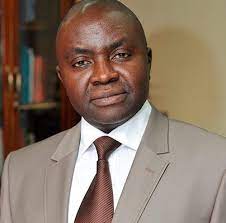The Centre for the Promotion of Private Enterprise [CPPE] has expressed concern about the marginal rise in Nigeria’s headline inflation from 15.60% in January to 15.70% in February 2022 published by the National Bureau of Statistics [NBS] on March 15 and urged the Federal Government to tackle the surge in general price level of the economy.
The CPI figures reflected 0.1% increase while food inflation decelerated marginally from 17.13% in January to 17.11% February 2022 and Core inflation sub index accelerated from 13.87% in January to 14.01% in February 2022.
The CPPE, in a statement issued on Wednesday by its Chief Executive Officer (CEO), Dr. Muda Yusuf, pointed out that while the technical computation of the inflation figures the NBS was not in dispute, the reality and severity of the impact of the intense inflationary pressures over the past one year is at variance with the official inflation data.
Yusuf maintained that for the basket of goods consumed by most households, prices had jumped by between 30-100% over the past one year just as the pressure of spiking inflation on businesses and household budgets had been excruciating and unbearable.
He expatiated: “Purchasing power has been massively eroded, real incomes have depressed, and the poverty situation has consequently worsened.
“Businesses have been similarly impacted as they have been experiencing a slump in sales, turnover and profits margins. The impact on small businesses is even more severe because of their limited capacity to absorb economic shocks.
“The spiraling inflation dynamics should be elevated to the level of an economic emergency, deserving an urgent policy response at the highest level of government. The impact on citizens’ welfare is inestimable. The effect on SMEs is troubling. There is elevated social discontent, driven by increasing joblessness and hunger”, Yusuf lamented.
He listed the key drivers of inflation as include high and increasing energy cost; worsening currency depreciation, escalating transportation cost, high import duty on manufacturing inputs, and illiquidity in the forex market.
Others are, bottlenecks in the logistics chain, security concerns and low productivity resulting from structural challenges and weak application of technology. Central bank financing of fiscal deficit is also a major driver of inflation.
To tackle inflation surge in the economy, the CPPE boss canvassed the need for fiscal and monetary authorities to address the key drivers.
Specifically, he charged the government to suspend forthwith “all forms of taxes and levies on the importation of petroleum products to give a respite on the spiking energy cost.
“There should also be deeper stakeholder engagements across sectors to develop an enduring strategy on the way forward”, the seasoned economist added.






